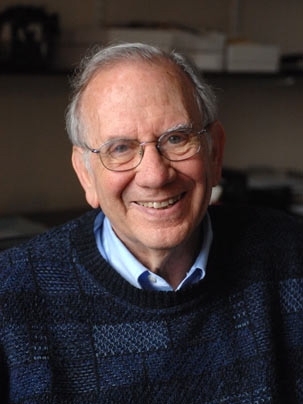In 2006, the Engineering Systems Division in MIT's School of Engineering launched an innovative graduate education and research collaboration with the government, universities and industries of Portugal. The MIT-Portugal Program addresses challenges facing Portugal -- and by extension other parts of the world -- by making significant investments in the areas of bioengineering, engineering design and advanced manufacturing, and sustainable energy systems and transportation systems. Halfway through its initial five-year funding period, the MIT-Portugal Program involves eight Portuguese institutions, 20 research centers, 236 Portuguese faculty, 57 MIT faculty (including several Institute Professors) and 196 graduate students. Research is undertaken at MIT as well as in Portugal, and while MIT Portugal graduate programs are at Portuguese universities, students from Portugal visit MIT and vice versa. The MIT director of the MIT Portugal Program, Daniel Roos, has been a driving force in the emergence of engineering systems as a field of study, an approach that helped spark Portugal's interest in working with MIT. The News Office recently sat down with Roos to talk about the program at its midway point.
Q: What was the initial connection between MIT and Portugal that launched this program?
A: When MIT decides whether to do an international relationship, the first question and perhaps the most important is: Is there intellectual value? Are there faculty members who see this as an exciting opportunity? That's why we conducted a six-month assessment before we decided to do the program. The resounding answer was yes. We're working in really important areas of energy and transportation, bioengineering and manufacturing. As it happens, Portugal has world-class engineering faculty, and some of them had had ongoing relationships with the top people in bioengineering in MIT for a decade or so. So the planets were nicely aligned.
There's one other reason: MIT has relationships with many wealthy counties. People should not get the incorrect impression that MIT simply goes where the money is. Portugal is going through a difficult transition. The country has been a low-cost manufacturer; it's losing those markets to Eastern Europe and China. Now Portugal has made a decision to commit to science and technology research. Development is essential to create the human resources necessary in knowledge-based industries. If we are successful in Portugal, and I'm convinced we will be, it sends a really important message to all the other Portugals of the world about MIT.
Q: You're halfway through the five-year program. Have there been any initial successes?
A: We've had numerous successes. For example, we've fostered new university-industry relationships in Portugal and have launched joint research projects on the leading-edge of energy, sustainability, manufacturing and bioengineering. We've also worked with our Portuguese partners to establish consortia of universities in Portugal. It's the first time universities have worked together there -- and the first time they will issue joint degrees. And, in our first year, we managed to create seven new academic programs, all national: four PhD programs and three "executive master's" programs.
Q: So this idea of collaboration, which is so key to MIT, has been exported to Portugal?
A: Yes. As Manuel Heitor, Portugal's secretary of state for science, technology and higher education, has noted, just as important as the partnership between Portugal and MIT is getting Portuguese universities working with one another.
Q: Tell us about some MIT Portugal research.
A: A lot of our projects involve more than one area. For example, we have a project that deals with global supply chains and how you can make them more energy-efficient. That impacts energy, transportation and manufacturing. We are working on three areas in transportation: high-speed rail, airports and intelligent transportation systems. There's the Green Islands Project in the Azores, a Portuguese archipelago in the Atlantic Ocean. We're working with partners in industry, government and academia there to substantially increase the percentage of energy use from renewables on the islands -- and to reduce the Azores' carbon footprint -- by implementing results of the research we're carrying out. We can look at improvements to the supply side, such as energy generated by geothermal and wind. But just as important is the demand side. So we're very much looking at energy efficiencies, such as a smart energy meter. We also have an urban metabolism project.
Q: What is "urban metabolism"?
A: John Fernández, associate professor in building technology, is focusing on this area, which examines how we can improve energy efficiency in our urban areas by making buildings and transportation more energy-efficient, based on smart networks. This is another arena in which our experiments and research are aimed at making a positive contribution, not just to Portugal but to science and technology more broadly. John and his family spent the 2008-2009 academic year in Lisbon; he is collaborating with Paulo Ferrão, MIT Portugal's program director in Portugal, on a book about urban metabolism. To me, that's what a relationship should be about.
Q: Where is the program headed, now that it has established graduate programs and launched research projects grounded in engineering systems?
A: We're particularly excited about three things. One is further developing our collaborations, including with the growing number of companies that are affiliated with MIT Portugal (multinationals as well as Portuguese companies). Another is seeing our graduate programs blossom. And a third is focusing in on three areas of research that show particular promise: sustainable energy and transportation systems projects, stem cell engineering for regenerative medicine, and advanced engineering design projects. We want to contribute real-world solutions to pressing economic and social challenges --in Portugal, but also in the wider world.






